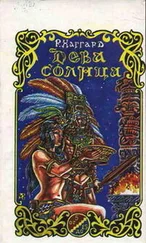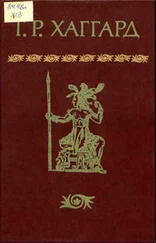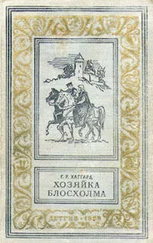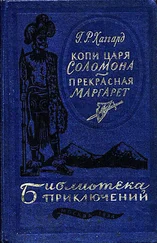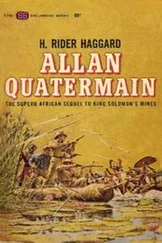"Accordingly on the following morning we started, and on the evening of the next day reached the spot where the elephants were reported to be. But here again we were met by ill luck. That the elephants had been there was evident enough, for their spoor was plentiful, and so were other traces of their presence in the shape of mimosa trees torn out of the ground, and placed topsy–turvy on their flat crowns, in order to enable the great beasts to feed on their sweet roots; but the elephants themselves were conspicuous by their absence. They had elected to move on. This being so, there was only one thing to do, and that was to move after them, which we did, and a pretty hunt they led us. For a fortnight or more we dodged about after those elephants, coming up with them on two occasions, and a splendid herd they were—only, however, to lose them again. At length we came up with them a third time, and I managed to shoot one bull, and then they started off again, where it was useless to try and follow them. After this I gave it up in disgust, and we made the best of our way back to the camp, not in the sweetest of tempers, carrying the tusks of the elephant I had shot.
"It was on the afternoon of the fifth day of our tramp that we reached the little koppie overlooking the spot where the waggon stood, and I confess that I climbed it with a pleasurable sense of home–coming, for his waggon is the hunter's home, as much as his house is that of the civilized person. I reached the top of the koppie, and looked in the direction where the friendly white tent of the waggon should be, but there was no waggon, only a black burnt plain stretching away as far as the eye could reach. I rubbed my eyes, looked again, and made out on the spot of the camp, not my waggon, but some charred beams of wood. Half wild with grief and anxiety, followed by Hans and Mashune, I ran at full speed down the slope of the koppie, and across the space of plain below to the spring of water, where my camp had been. I was soon there, only to find that my worst suspicions were confirmed.
"The waggon and all its contents, including my spare guns and ammunition, had been destroyed by a grass fire.
"Now before I started, I had left orders with the driver to burn off the grass round the camp, in order to guard against accidents of this nature, and here was the reward of my folly: a very proper illustration of the necessity, especially where natives are concerned, of doing a thing one's self if one wants it done at all. Evidently the lazy rascals had not burnt round the waggon; most probably, indeed, they had themselves carelessly fired the tall and resinous tambouki grass near by; the wind had driven the flames on to the waggon tent, and there was quickly an end of the matter. As for the driver and leader, I know not what became of them: probably fearing my anger, they bolted, taking the oxen with them. I have never seen them from that hour to this.
"I sat down on the black veldt by the spring, and gazed at the charred axles and disselboom of my waggon, and I can assure you, ladies and gentlemen, I felt inclined to weep. As for Mashune and Hans they cursed away vigorously, one in Zulu and the other in Dutch. Ours was a pretty position. We were nearly 300 miles away from Bamangwato, the capital of Khama's country, which was the nearest spot where we could get any help, and our ammunition, spare guns, clothing, food, and everything else, were all totally destroyed. I had just what I stood in, which was a flannel shirt, a pair of 'veldt–schoons,' or shoes of raw hide, my eight–bore rifle, and a few cartridges. Hans and Mashune had also each a Martini rifle and some cartridges, not many. And it was with this equipment that we had to undertake a journey of 300 miles through a desolate and almost uninhabited region. I can assure you that I have rarely been in a worse position, and I have been in some queer ones. However, these things are the natural incidents of a hunter's life, and the only thing to do was to make the best of them.
"Accordingly, after passing a comfortless night by the remains of my waggon, we started next morning on our long journey towards civilization. Now if I were to set to work to tell you all the troubles and incidents of that dreadful journey I should keep you listening here till midnight; so I will, with your permission, pass on to the particular adventure of which the pair of buffalo horns opposite are the melancholy memento.
"We had been travelling for about a month, living and getting along as best we could, when one evening we camped some forty miles from Bamangwato. By this time we were indeed in a melancholy plight, footsore, half starved, and utterly worn out; and, in addition, I was suffering from a sharp attack of fever, which half blinded me and made me weak as a babe. Our ammunition, too, was exhausted; I had only one cartridge left for my eight–bore rifle, and Hans and Mashune, who were armed with Martini Henrys, had three between them. It was about an hour from sundown when we halted and lit a fire—for luckily we had still a few matches. It was a charming spot to camp, I remember. Just off the game track we were following was a little hollow, fringed about with flat–crowned mimosa trees, and at the bottom of the hollow, a spring of clear water welled up out of the earth, and formed a pool, round the edges of which grew an abundance of watercresses of an exactly similar kind to those which were handed round the table just now. Now we had no food of any kind left, having that morning devoured the last remains of a little oribé antelope, which I had shot two days previously. Accordingly Hans, who was a better shot than Mashune, took two of the three remaining Martini cartridges, and started out to see if he could not kill a buck for supper. I was too weak to go myself.
"Meanwhile Mashune employed himself in dragging together some dead boughs from the mimosa trees to make a sort of 'skerm,' or shelter for us to sleep in, about forty yards from the edge of the pool of water. We had been greatly troubled with lions in the course of our long tramp, and only on the previous night have very nearly been attacked by them, which made me nervous, especially in my weak state. Just as we had finished the skerm, or rather something which did duty for one, Mashune and I heard a shot apparently fired about a mile away.
"'Hark to it!' sung out Mashune in Zulu, more, I fancy, by way of keeping his spirits up than for any other reason—for he was a sort of black Mark Tapley, and very cheerful under difficulties. 'Hark to the wonderful sound with which the "Maboona" (the Boers) shook our fathers to the ground at the Battle of the Blood River. We are hungry now, my father; our stomachs are small and withered up like a dried ox's paunch, but they will soon be full of good meat. Hans is a Hottentot, and an "umfagozan," that is, a low fellow, but he shoots straight—ah! he certainly shoots straight. Be of a good heart, my father, there will soon be meat upon the fire, and we shall rise up men.'
"And so he went on talking nonsense till I told him to stop, because he made my head ache with his empty words.
"Shortly after we heard the shot the sun sank in his red splendour, and there fell upon earth and sky the great hush of the African wilderness. The lions were not up as yet, they would probably wait for the moon, and the birds and beasts were all at rest. I cannot describe the intensity of the quiet of the night: to me in my weak state, and fretting as I was over the non–return of the Hottentot Hans, it seemed almost ominous—as though Nature were brooding over some tragedy which was being enacted in her sight.
"It was quiet—quiet as death, and lonely as the grave.
"'Mashune,' I said at last, 'where is Hans? my heart is heavy for him.'
"'Nay, my father, I know not; mayhap he is weary, and sleeps, or mayhap he has lost his way.'
Читать дальше
Конец ознакомительного отрывка
Купить книгу


